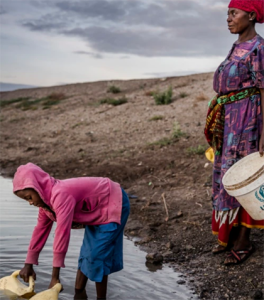Kenya grants refugees work rights
Kenya has introduced a new law that will give a half-million refugees in the country an opportunity to work for a living, instead of depending on the aid agencies that have supported them for three decades.
The law, signed by Kenyan President Uhuru Kenyatta, allows refugees to get education, jobs and integrate into Kenyan society.
 It will effectively help aid agencies to focus more on creating opportunities that can improve the lives of the refugees.
It will effectively help aid agencies to focus more on creating opportunities that can improve the lives of the refugees.
In a first for Kenya, the law will allow refugees to become self-reliant and is an opportunity for aid agencies to focus on enabling and empowering refugees to become self-reliant.
Kenya hosts one of the largest refugee populations in Africa. Most of the refugees live in two big camps – Dadaab, which borders Somalia, and Kakuma, which borders South Sudan.
The Kenyan government has said it will close the camps next year.
The United Nations World Food Program (WFP) says it has not been able to provide a full food ration to refugees since 2018, and last month it was forced to cut rations another 20 percent.
In September, the WFP said it needs $40 million to feed refugees in Dadaab and Kakuma camps for six months.
The aid agencies in Kenya have argued refugees can contribute a lot to Kenya’s economy and social fabric if given opportunities instead of remaining in the camps.
Kenya is now the second biggest refugee-hosting country in Africa after Ethiopia. Kenya hosts refugees mainly from the Great Lakes and the Horn of Africa region.
The majority of refugees and asylum seekers in Kenya originate from Somalia (54 per cent). Other major nationalities are South Sudanese (24.6 per cent), Congolese (9 per cent); Ethiopians (5.8 per cent). Persons of concern from other nationalities including Sudan, Rwanda, Eritrea, Burundi, Uganda and others make up 6.8 per cent of the total refugee population of more than 500,000.
Almost half of the refugees in Kenya (44 per cent) reside in Dadaab, 40 per cent in Kakuma and 16 per cent in urban areas, mainly in the capital Nairobi, alongside 18,500 stateless persons.












